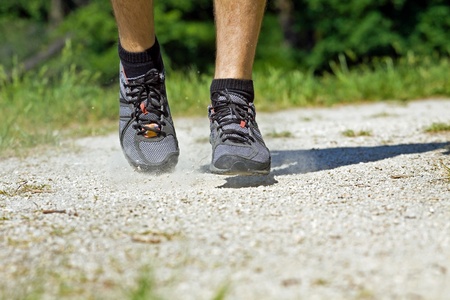Introduction to Walking and Hiking in British Culture
Walking and hiking hold a special place in the heart of British culture, blending centuries-old traditions with the rhythms of modern life. From gentle rambles through rolling countryside to vigorous treks along famed national trails such as the Pennine Way or South West Coast Path, these activities are woven into the fabric of daily life and well-being across the UK. The simple act of setting out on foot—whether through misty moors, ancient woodlands, or along dramatic cliff paths—has long been cherished not only as a means of connecting with nature but also as a way to cultivate balance between body and mind. In many ways, walking and hiking reflect a deep-seated respect for the land and its healing qualities, echoing both time-honoured rural customs and contemporary pursuits of physical wellness. For countless Britons, weekend strolls or ambitious hikes offer more than just exercise; they serve as rituals that nurture resilience, foster community, and invite mindful reflection in an ever-busy world.
Physical Health Benefits of Regular Walking and Hiking
Walking and hiking are deeply woven into the British way of life, offering a practical and accessible means to promote physical wellbeing. Recent research and advice from national public health bodies such as the NHS consistently highlight the significant benefits that regular walking and hiking provide for cardiovascular health, mobility, and longevity.
Cardiovascular Health
Routine walking and hiking stimulate the heart, improving blood circulation and reducing blood pressure. According to Public Health England, brisk walking for at least 150 minutes per week can lower the risk of heart disease by up to 35%. These activities also help regulate cholesterol levels and support optimal heart function—a cornerstone for holistic health from both a modern medical and traditional Chinese medicine perspective, where free-flowing qi (energy) is essential for vitality.
Mobility and Musculoskeletal Support
Britain’s varied landscapes—from gentle Cotswolds trails to rugged Scottish Highlands—encourage movements that enhance joint flexibility, muscle strength, and balance. Regular engagement in walking or hiking helps maintain healthy connective tissues and supports postural stability, which is especially important as we age. The rhythmic movement aligns with principles of body-mind harmony, promoting smooth meridian flow while preventing stagnation that can lead to discomfort or chronic pain.
Longevity: A Path to Healthy Ageing
Evidence shows that consistent moderate physical activity such as walking or hiking contributes to increased lifespan. Walking has been associated with lower risks of chronic illnesses like diabetes, stroke, and certain cancers. In the UK context, embracing local footpaths not only fosters community engagement but also nurtures resilience against age-related decline—a holistic approach akin to yangsheng (nourishing life) in Chinese medicine.
Summary Table: Key Physical Benefits
| Benefit | Description | Supporting Advice/Research |
|---|---|---|
| Cardiovascular Health | Lowers blood pressure, improves circulation, reduces heart disease risk | NHS: 150 min/week lowers risk by 35% |
| Mobility & Flexibility | Strengthens muscles/joints, enhances balance and posture | PHE: Reduces falls in older adults; maintains independence |
| Longevity | Lowers risk of chronic diseases; supports healthy ageing | BMJ studies: Increased lifespan with regular activity |
Cultural Relevance in Britain
In Britain, embracing routine walks—whether through urban parks or countryside rambles—aligns well with public health guidance and traditional wisdom alike. This simple yet profound habit not only preserves physical wellness but also reflects a balanced lifestyle deeply rooted in local culture.

3. Mental and Emotional Wellness Through Nature
Britain’s treasured green spaces, moorlands, and expansive national parks have long been regarded as sanctuaries for those seeking mental clarity and emotional balance. From a scientific perspective, numerous studies highlight how immersion in natural landscapes supports stress reduction, lowers anxiety levels, and boosts overall mood. The gentle act of walking or hiking through the rolling Lake District, the mystical Scottish Highlands, or the tranquil South Downs allows the mind to rest and recalibrate, away from urban noise and daily pressures.
Holistically, these environments play an even deeper role in harmonising the body and spirit. In traditional Chinese medicine, regular connection with nature is seen as vital for balancing Qi—the life force energy—and harmonising the five elements within us. Walking amidst ancient woodlands or open heathland encourages a slow, mindful pace that nurtures Shen (spirit) and calms the heart. This practice not only relieves emotional stagnation but also strengthens resilience against modern stressors.
Moreover, British culture deeply values its public rights of way—footpaths crisscrossing countryside and coast—fostering a sense of community as well as personal reflection. Whether it is a solitary ramble through Yorkshire’s wild heather or a family stroll in Richmond Park, these experiences cultivate gratitude, presence, and emotional connectedness. The interplay between science and holistic wisdom reveals that spending time in Britain’s natural havens offers more than just physical exercise; it is a restorative ritual for mind and soul alike.
Social and Community Aspects of Outdoor Activities
Walking and hiking in the UK are not merely solitary pursuits; they are deeply woven into the fabric of social wellbeing. The tradition of walking groups, local rambles, and community-led events plays a significant role in nurturing both physical and emotional health. These collective activities foster a sense of belonging, bridging generational gaps and reinforcing interdependence within communities.
Many Britons find that joining organised walking groups provides motivation, accountability, and an opportunity to connect with like-minded individuals. Social rambling—walking together while engaging in conversation—offers more than just exercise; it is a means to share stories, knowledge, and cultural traditions, much like the ancient practice of gathering herbs or exploring the countryside for healing plants.
The Benefits of Walking Groups and Community Events
| Aspect | Description | Wellness Benefit |
|---|---|---|
| Walking Groups | Regularly scheduled walks with others | Enhances motivation, reduces loneliness, supports mental wellness |
| Social Rambling | Conversational walking across local trails or green spaces | Strengthens bonds, encourages sharing of experiences, relieves stress |
| Local Events | Organised hikes, charity walks, or heritage trails | Promotes inclusivity, celebrates community identity, inspires cross-generational participation |
From a holistic perspective grounded in traditional wisdom, these shared outdoor activities help harmonise body and mind by encouraging gentle movement (養生), emotional exchange (調心), and collective intention. The British landscape itself becomes a living space for cultivating both individual vitality and collective harmony. In essence, the act of walking together is not only about moving through nature but also about nurturing enduring connections—between people, places, and generations—that underpin true physical wellness in British society.
5. Mind–Body Harmony: A Holistic Approach
Walking and hiking in the British countryside offer more than physical benefits; they provide an opportunity to cultivate harmony between body and mind, a concept deeply rooted in both traditional East Asian medicine and British holistic wellness philosophies. In Chinese medicine, health is understood as the dynamic balance of Qi (vital energy), yin and yang, and the harmonious flow of energy through the body’s meridians. Similarly, British traditions often embrace nature-based wellbeing practices, encouraging mindful connection with the land and seasonal rhythms.
Integrating these perspectives, walking becomes a mindful movement practice that nurtures both physical vitality and emotional equilibrium. As you stroll along woodland paths or hike across rolling hills, you can attune yourself to your breath, footsteps, and the natural world around you. This mindful awareness aligns with the East Asian principle of “moving meditation,” which encourages gentle movement while maintaining mental clarity and calm.
Seasonal rhythms also play a vital role in holistic wellness. In both cultures, there is recognition that our bodies respond to changes in weather, daylight, and landscape. Spring walks invigorate the Liver Qi in Chinese medicine—supporting renewal and flexibility—while autumn hikes help ground and stabilise our energy as days grow shorter. Embracing these rhythms allows walkers to adapt their routines for optimal health throughout the year.
Moreover, mindful walking supports emotional balance by helping to release tension and quieten the mind. The British tradition of “rambling” offers space for reflection, creativity, and even social connection, echoing the communal aspects of Eastern wellness practices. By walking with intention—whether alone or with others—you create a moving sanctuary that nourishes body, mind, and spirit alike.
Ultimately, integrating principles from traditional East Asian medicine with British approaches to holistic wellness empowers individuals to experience walking not just as exercise but as a restorative ritual. Through balance, seasonal awareness, and mindful presence, every step taken in nature becomes an act of self-care and harmony.
6. Safety, Accessibility, and Inclusivity in British Walking
Walking and hiking are cherished activities throughout the UK, offering not only physical benefits but also opportunities to connect with nature and community. To ensure that these activities contribute meaningfully to physical wellness for everyone, it is essential to focus on safety, accessibility, and inclusivity.
Accessible Routes for All Abilities
The UK boasts a wide array of walking paths, from coastal promenades to woodland trails. For those seeking accessible routes, many National Trust properties and local councils provide information on step-free paths suitable for wheelchairs, prams, or individuals with limited mobility. Websites such as Walks With Wheelchairs and The Ramblers “Paths for Everyone” initiative highlight routes that cater to diverse needs. Always check route descriptions and facilities beforehand to ensure suitability for your abilities.
Safety Tips on British Trails
While walking in the British countryside or urban parks is generally safe, a few simple precautions help ensure a pleasant experience. Wear weather-appropriate clothing—layers and waterproofs are often wise given the unpredictable British weather. Sturdy footwear is vital on uneven or muddy terrain. Let someone know your planned route if venturing into remote areas, carry a fully charged mobile phone, and bring enough water and snacks. On moorland or coastal walks, consult local tide times and be aware of rapidly changing conditions. Remember the Countryside Code: respect others, protect the natural environment, and enjoy the outdoors responsibly.
Promoting Inclusivity in Walking Communities
Inclusivity is at the heart of Britain’s walking culture. Community groups such as Walking for Health offer guided walks designed for people of varying ages, fitness levels, and backgrounds—including those recovering from illness or managing chronic conditions. Many initiatives specifically welcome families with young children, older adults, or individuals with sensory impairments. Culturally diverse walking groups are emerging across the UK, ensuring people from all communities feel welcome and valued.
Creating a Supportive Walking Environment
British walking organisations continually work towards eliminating barriers—physical, social, or psychological—that might prevent participation. This includes providing clear signage on trails, offering walk leader training on disability awareness, and encouraging feedback from walkers about how routes can be improved. By fostering a spirit of openness and mutual support, the joy and health benefits of walking can be shared by all members of society.
Together Towards Holistic Wellness
In line with holistic principles that unite body and mind—a key tenet of both traditional Chinese medicine and contemporary wellness philosophies—accessible and inclusive walking enables everyone to benefit from movement in nature. As Britain continues to champion safe, welcoming spaces for walkers of all backgrounds and abilities, the path toward collective physical wellness becomes ever more attainable.
7. Conclusion: Embracing Walking and Hiking for Whole-Person Wellness
Walking and hiking, deeply woven into the fabric of British culture, offer a uniquely holistic approach to wellness that extends far beyond simple physical exercise. These traditional pursuits not only strengthen the body but also nourish the mind and foster meaningful social connections. As explored throughout this article, making walking and hiking a regular part of daily life in Britain can support balanced health in a way that aligns with both modern science and age-old wisdom.
From a whole-person perspective, the rhythmic movement of walking or traversing countryside paths helps regulate qi flow—the vital energy described in Chinese medicine—promoting harmony between body systems and calming the spirit. The gentle exposure to fresh air, green spaces, and seasonal changes further supports mental clarity and emotional resilience, providing natural antidotes to modern stressors. Socially, these activities create opportunities for connection, whether through family rambles, community walking groups, or spontaneous encounters along public footpaths.
Integrating walking and hiking more deeply into everyday British life can cultivate a sense of rootedness and wellbeing. It is an invitation to slow down, appreciate the landscapes that define the nation’s character, and reconnect with oneself and others. By embracing these time-honoured practices as cornerstones of daily wellness—rather than occasional outings—we honour both our personal health and the communal traditions that make British culture unique. Let us step forward together, nurturing our bodies, minds, and communities with each mindful stride.


